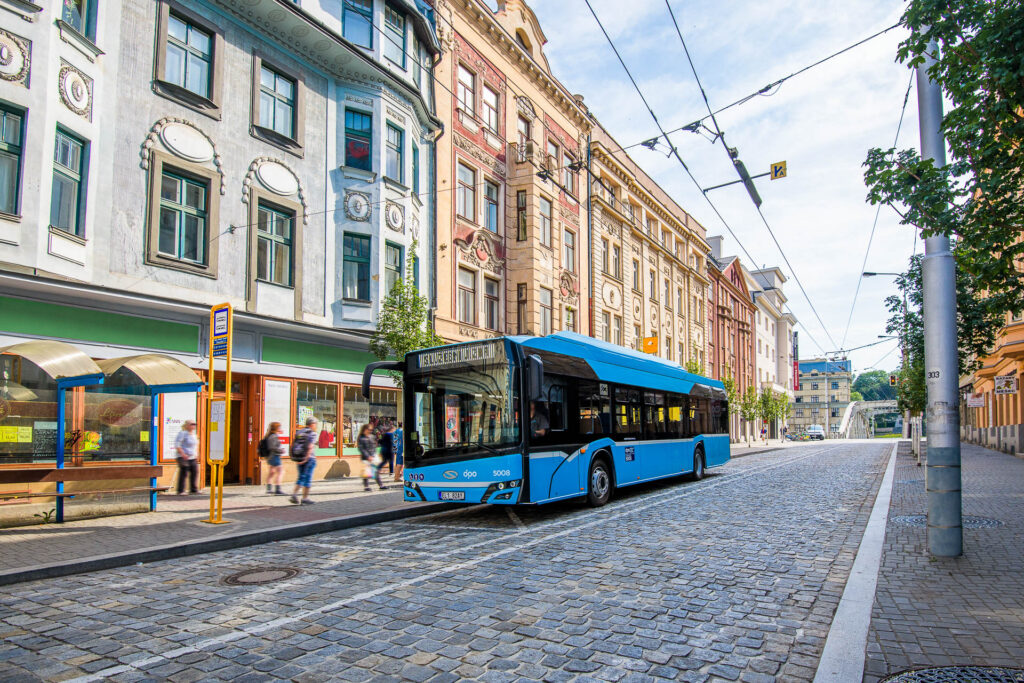
Back
Zero-emission buses: definition
Zero emission buses, also known as emission-free buses, are public transport vehicles that do not produce any greenhouse gas emissions at the point of use during their daily operation.
There are three types of zero-emission public transport vehicles:
- Electric buses – powered solely by an electric motor, the cycle of which produces no greenhouse gas emissions. Their batteries are charged by plug-in or pantograph chargers,
- Hydrogen buses, i.e. buses powered by electricity generated by hydrogen cells installed on the vehicle,
- Trolley buses, i.e. buses with an electric motor that draws electricity from two overhead wires via spring-loaded trolley poles.
Note the phrase “engine whose cycle does not lead to greenhouse gas emissions”. This significantly narrows the definition of zero-emission buses, explicitly excluding hybrid buses or those powered by compressed natural gas (CNG) or liquefied natural gas (LNG).